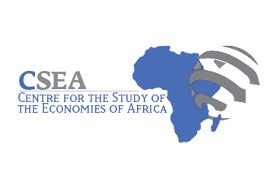The Centre for the Study of Economies of Africa (CSEA), a leading economic research organization, has listed some steps for government to take in order to translate the humongous tax incentives provided in the Finance Act 2020 for businesses to national economic benefits.
Researchers at the Centre, in the just published Nigeria Economic Update 1 Report, noted that the new Act contained several amendments to existing tax laws, adding that the incentives and exemptions being granted enterprises can potentially improve the business climate for Small and Medium Enterprises (SMEs) and other sectors of the economy if the provisions are effectively implemented.
The report stated: “Following the president’s approval, the Finance Act 2020 is set to take effect from 1 January 2021. The Act contains several amendments to existing tax laws, particularly tax exemptions and reliefs. Examples include; tax holidays for small and medium sized enterprises (SMEs) involved in agricultural production, expansion of approved list of deductible donations, exemption of all SMEs from tertiary education tax, among others.
“These exemptions can potentially improve the business climate for SMEs, make them more competitive, act as catalyst for greater growth in the agricultural sector, and could be instrumental in fast tracking the economic diversification efforts in the country”, the researchers added.
The experts, however, warned that considering the huge budget deficit for the year and limited government revenue streams, it was important that the government regularly assesses the real costs of these tax expenditures and the potential of such incentives to actually drive investment in priority sectors.
On Nigeria’s economic growth projections by international analysts, development finance institutions and the government for 2021, the researchers hinged the attainment of such projected growth rates on whether there is a second wave of the COVID-19 pandemic in Nigeria and in key trade and investment partners such as the United States, United Kingdom, and China.
Even then, the CSEA analysts stated that the implementation of the African Continental Free Trade Area (AfCFTA) could significantly boost economic activities as long as non-tariff barriers such as port delays are removed.






